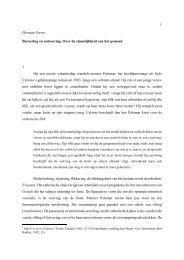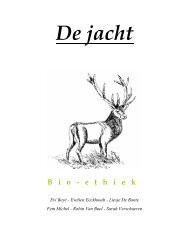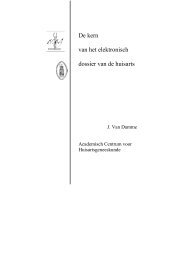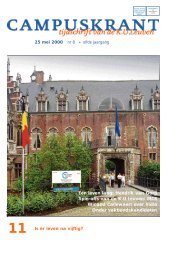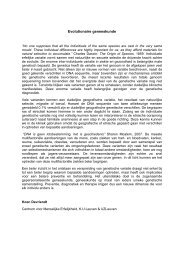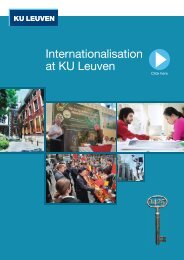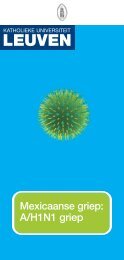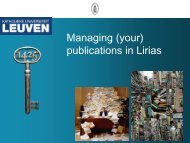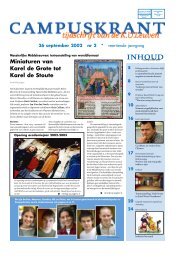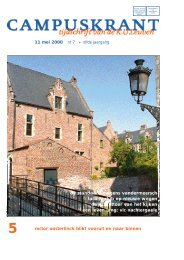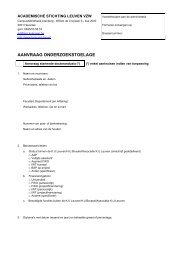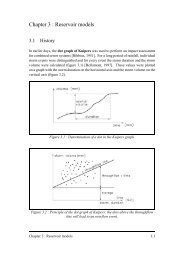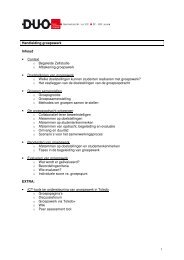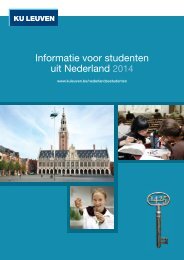EQUALITY GUIdE - KU Leuven
EQUALITY GUIdE - KU Leuven
EQUALITY GUIdE - KU Leuven
You also want an ePaper? Increase the reach of your titles
YUMPU automatically turns print PDFs into web optimized ePapers that Google loves.
Chapter 4 ! Scientific communication 191<br />
3.3. Focus group sessions<br />
The 12 female researchers of the University of Antwerp mapped the information and<br />
training needs that they had experienced in the fields of gender and communication.<br />
Based on that, they elaborated the training content.<br />
This phase consisted of five meetings of three hours each. The meetings were held<br />
during lunch on request of the participants so that the researchers did not lose any<br />
working time. The moderator (the project researcher) presided the meeting while an<br />
assistant gave support.<br />
Each meeting was preceded by a preparation to elaborate a scenario (see Tool Annex)<br />
in which the following topics were taken into consideration:<br />
1. the aim of the meeting;<br />
2. the programme of the meeting with time indications;<br />
3. a text to introduce the topic and the meeting;<br />
4. the necessary materials such as copies, post-its, scrap paper, etc.;<br />
5. the appointments with guest speakers.<br />
Each time, an invitation was sent to the participants with the programme, the date, the<br />
room and the hour of the meeting. An assistant took care of taking notes, ordering<br />
sandwiches and coffee, writing and sending the report, and ensuring the audiovisual<br />
materials. The participants filled in an evaluation form at the end of each meeting (see<br />
Tool Annex). Afterwards there was a discussion between moderator and assistant, and<br />
a follow-up of tasks by e-mail. The report of each meeting was put on blackboard.<br />
3.3.1. Meeting 1: Brainstorming about gender and communication<br />
The aim of this first meeting was to list all opinions, attitudes, experiences, expertise,<br />
expectations and ideas with respect to gender problems at the university and in the<br />
field of communication to create a tool for career advancement (see Tool Annex).<br />
Before exploring the gender and communication topics, some time was spent on getting<br />
to know each other. Everyone filled in a personal information and criteria questionnaire<br />
(see Tool Annex). Afterwards, they briefly discussed this information with<br />
their neighbour, and then this neighbour told the whole group what she learnt about<br />
the person sitting next to her (maximum 2 minutes per person) so everyone knew who<br />
the other people in the group were. The project researcher who presided the meeting<br />
and the assistant also participated in this round.<br />
Then the participants had to answer the following questions:<br />
1. Concerning gender: what are the gender problems female academics face according<br />
to you? How do you experience these problems? Do you have suggestions for a<br />
guest speaker?<br />
2. Concerning communication: can communication be a tool for the successful advancement<br />
of female academics? Which aspects are therefore important and need



